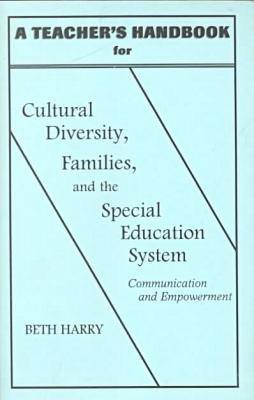Special Education S.
1 total work
This work explores the quadruple disadvantage faced by the parents of poor, minority, handicapped children whose first language is not that of the school that they attend. The author's ethnographic study of 12 low-income Puerto Rican American families serves to illustrate how the present structure of the special education system disempowers parents, excluding them from the decision-making processes that categorise their children as "handicapped" - and ultimately, often place them at a permanent educational disadvantage.
